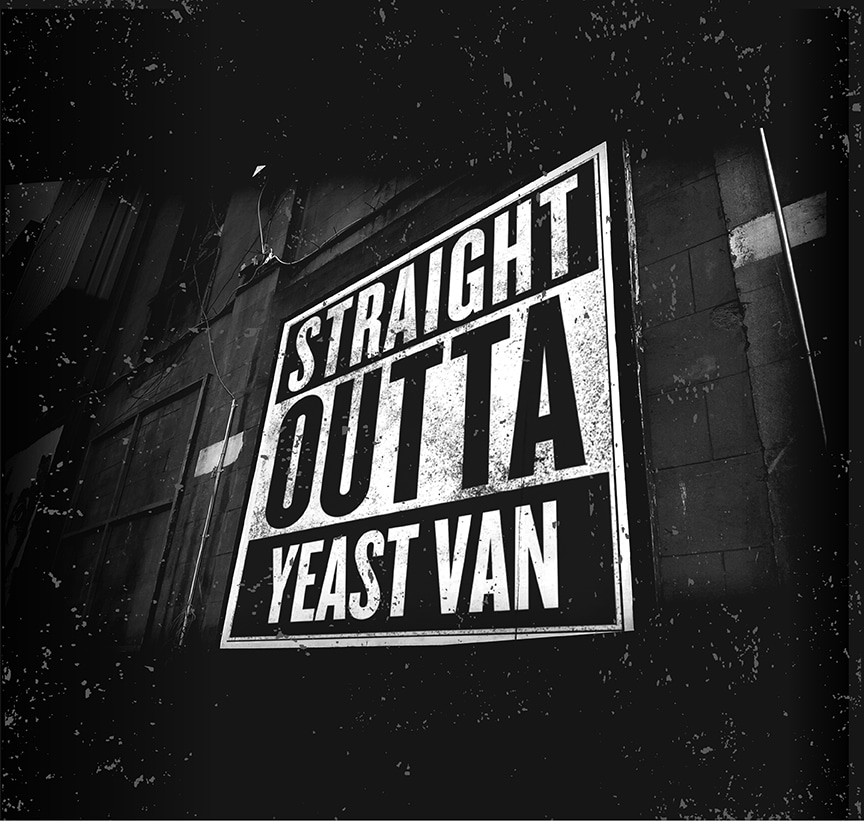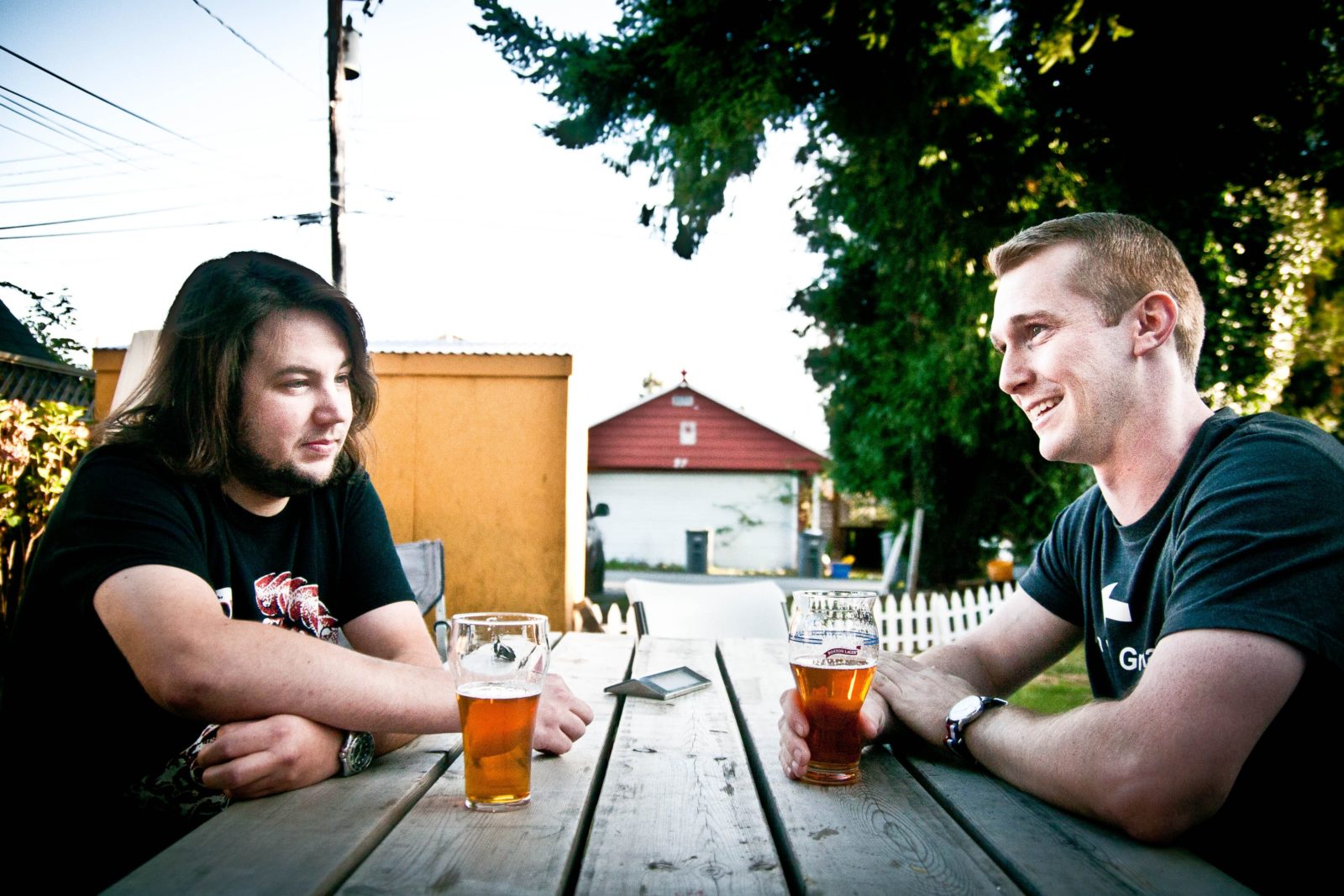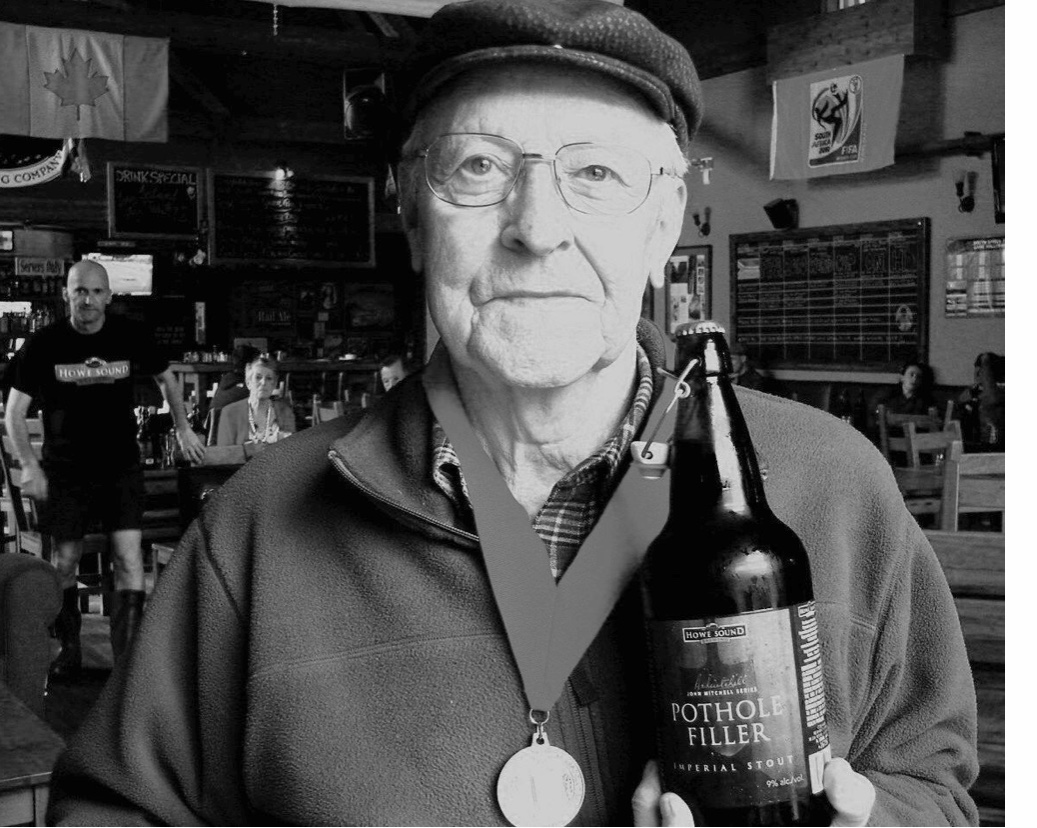
This story originally appeared in the Fall 2019 issue of The Growler, out now! You can find B.C.’s favourite craft beer guide at your local brewery, select private liquor stores, and on newsstands across the province.
It might seem hard to believe in today’s craft beer landscape, with close to 190 breweries dotting every corner of this province, but there was a time not so long ago when craft beer simply did not exist. In the late 1970s and early 1980s, the North American landscape of beer was barren. Tasteless, homogenous lagers, each indistinguishable from each other dominated the market.
Enter John Mitchell, the Grandfather of Canadian Craft Beer.
Inspired by his love for the rich, flavourful ales of the U.K.—and their complete absence in Canada—Mitchell lobbied all levels of government to allow craft breweries the right to legally exist, thus setting the stage for the coming craft beer revolution. He pioneered the country’s first craft brewery in 1982, co-founded Spinnakers Brewpub—the oldest continuously operating craft brewery in Canada—and mentored countless young brewers at a time when professional brewmaster training programs didn’t exist here.
Mitchell passed away June 16 at the age of 89.
Mitchell was born in Singapore in 1929 and raised in England, before immigrating to Canada in 1953. Trained as a fine dining chef, he worked at the Banff Springs Hotel before coming west to Vancouver, where he tended bar at the Vancouver Club and the Sylvia Hotel. By the early 1980s, he had bought into the Troller Pub in Horseshoe Bay, and after a trip back to England with his wife Jenny, Mitchell became convinced he needed to turn it into a brewpub.
The only problem? Brewpubs and craft breweries didn’t exist in Canada and were, in fact, illegal. Not only that, but Mitchell wasn’t a brewer brewing equipment small enough for such an operation was a rarity in North America.
After reading an article in Harrowsmith magazine by brewer Frank Appleton titled “The Underground Brewmaster,” Mitchell tracked him down to his home in the remote West Kootenay town of Edgewood and recruited him to his cause.
“I read your article and was wondering if you could help me,” Mitchell said in their first phone conversation, described in Appleton’s book, Brewing Revolution. “I want to make a beautiful beer, a beer with character, like some you can still find in England.”
But first there was still that pesky problem of licensing.
Mitchell took his proposal to the B.C. government and Liquor Control and Licensing Branch and fought to change Prohibition-era laws. He claimed the rules that prevented him from operating were unfair, archaic and amounted to a monopoly for the Big Three—Molson, Labatt and Carling O’Keefe—that controlled 90 per cent of the Canadian beer market. The provincial government, looking to use deregulation as leverage against the big beer monopoly after an ill-timed beer strike and a price fixing scandal, was somewhat willing to listen. It took 18 months, but Mitchell got his approval, and the laws were changed.
There was a catch, though—Horseshoe Bay Brewing would have to be a separate entity, and be located offsite of the pub.
And so on June 17, 1982, the first pint of Horseshoe Bay Brewing’s Bay Ale was served at the Troller Pub, marking the beginning of the craft beer revolution in Canada.
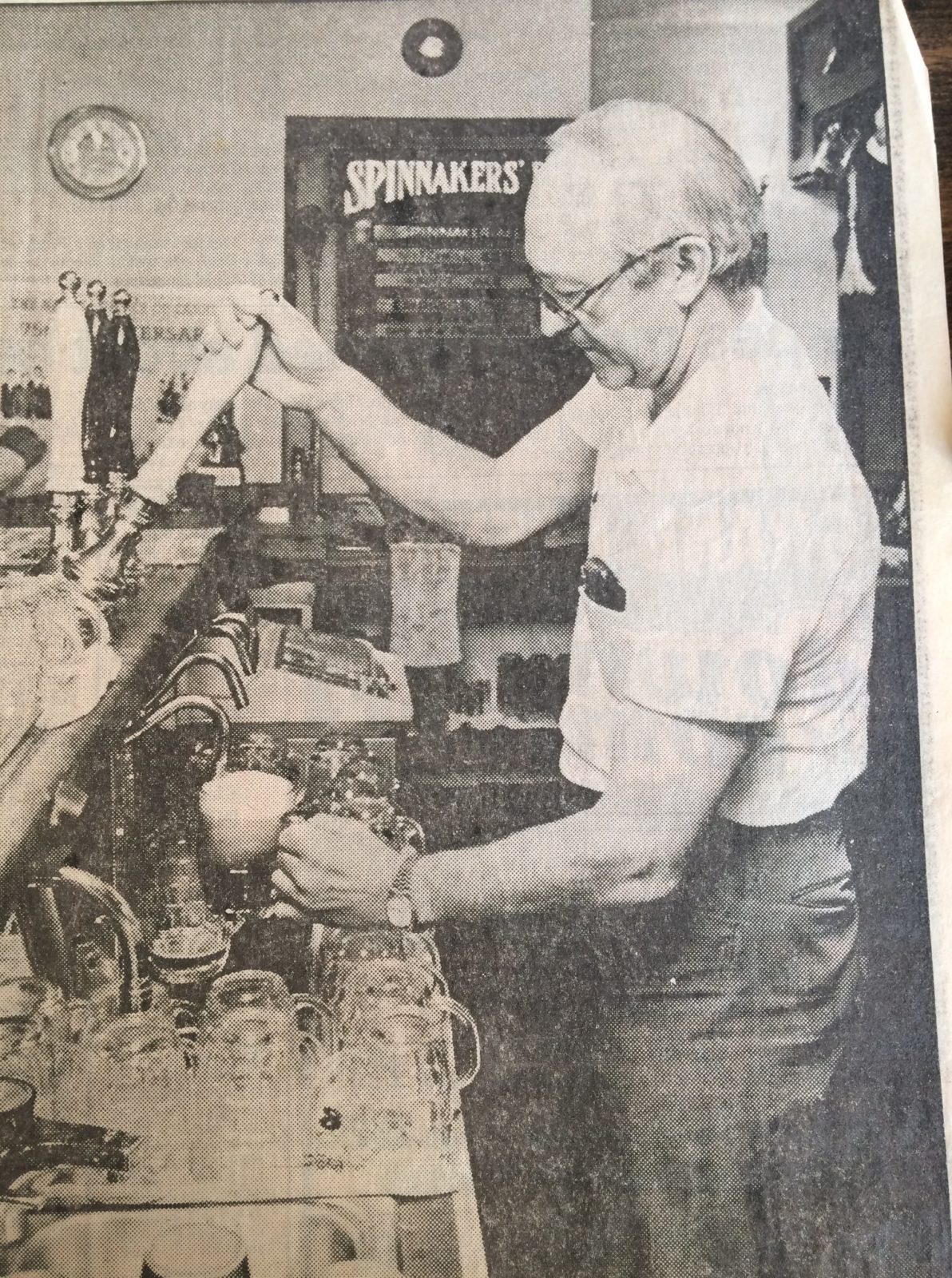
While Horseshoe Bay Brewing was short-lived, its impact was not. The changes Mitchell fought for created an entirely new industry. In 1984, Mitchell and partners Paul Hadfield and Ray Ginever co-founded Spinnakers Brewpub in Victoria, with Mitchell serving as the first brewer. Today, you can still find hand-pulled pints of Mitchell’s ESB on the beer list.
“We looked at replicating what Horseshoe Bay Brewing wanted to be,” says Hadfield. “So we decided, let’s start over from the ground up.”
“It was John’s dream and he absolutely reveled in the excitement of it all.”
Again, Mitchell had to fight to change the laws: this time overturning regulations forbidding a brewery to serve its own beer on premises.
“He opened the door, with his drive and determination,” says Hadfield. “And 35 years later that door keeps getting wider and wider.”
After leaving Spinnakers in 1986, Mitchell worked as a consultant, traveling around North America to teach countless others about craft brewing.
One such brewery was Howe Sound Brewing in Squamish, where Mitchell designed its first brewhouse and its original recipes, some of which are still in production today, largely unchanged.
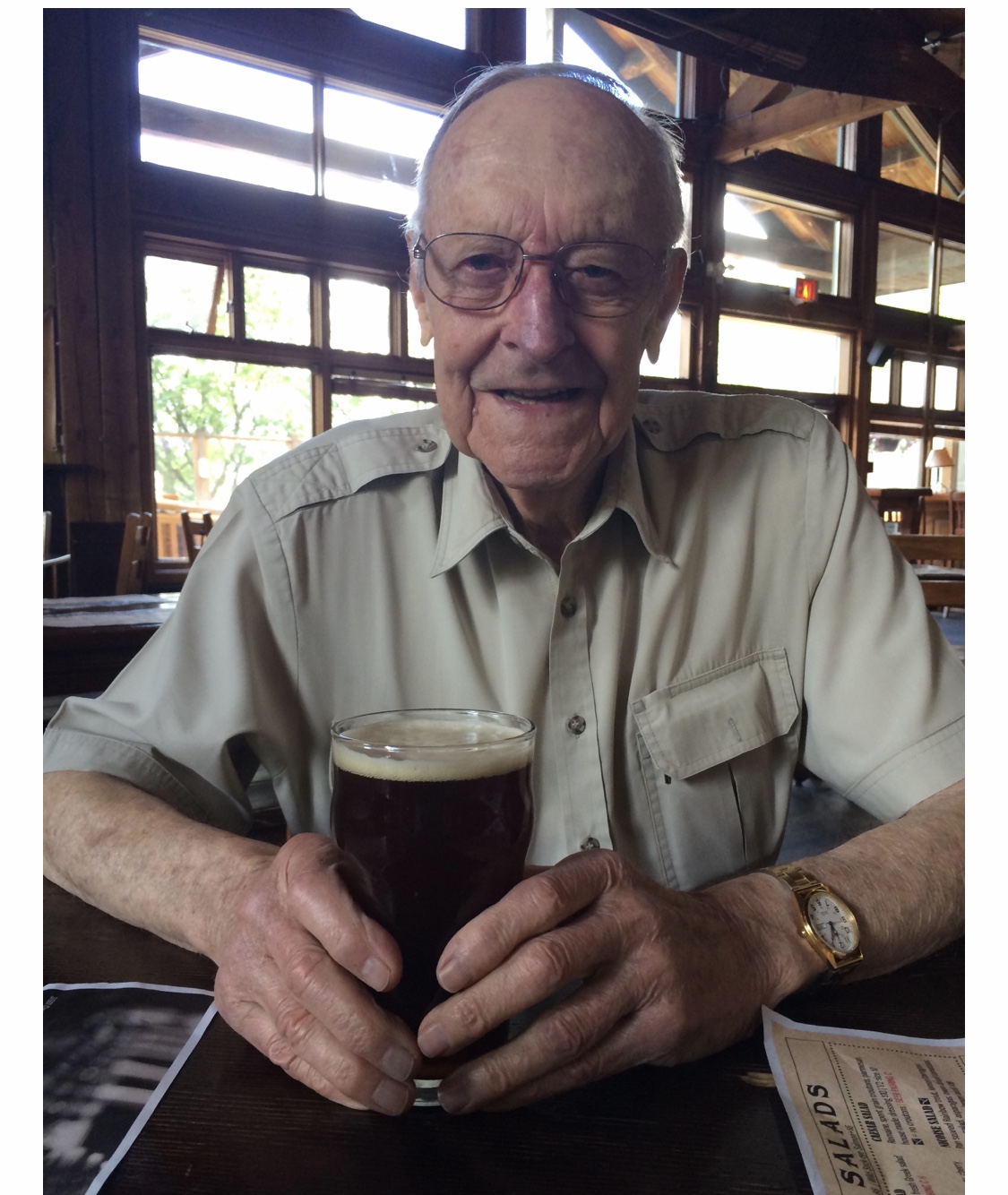
“We’re still receiving awards for the beers he designed,” says owner Leslie Fenn. She remembers Mitchell for his quick wit and warm demeanour—a Dickensian character with his trademark cap and thermometer in left breast pocket, ever ready to test the temperature of his beer. Mitchell was a regular at Howe Sound’s tasting room right up until his death, and would visit every Friday for a pint of bitter and a margarita pizza.
“He helped many people, trained many young brewers and helped many breweries get started,” says Fenn. “He brought that [U.K. beer] tradition to Canada… and helped create an entire industry where small businesses can thrive.”
The entire craft beer industry in Canada owes him a debt, she says.
“We wouldn’t be here without him.”
As a craft beer pioneer, Mitchell “started an economic and cultural revolution that went on to challenge the dominance of the major beer brands and changed the way people think about and consume beer,” according to the John Mitchell Foundation, a non-profit charity named in honour of Mitchell that provides endowments and scholarships for students at Kwantlen Polytechnic University’s brewing diploma program in Langley.
“My loud mouth got me some attention and it worked,” Mitchell told writer Joe Wiebe in his book, Craft Beer Revolution. “I’m very proud of what has happened. I couldn’t be more pleased.”
- The Fall 2019 issue of The Growler is out now! You can find B.C.’s favourite craft beer guide at your local brewery, select private liquor stores, and on newsstands across the province.


